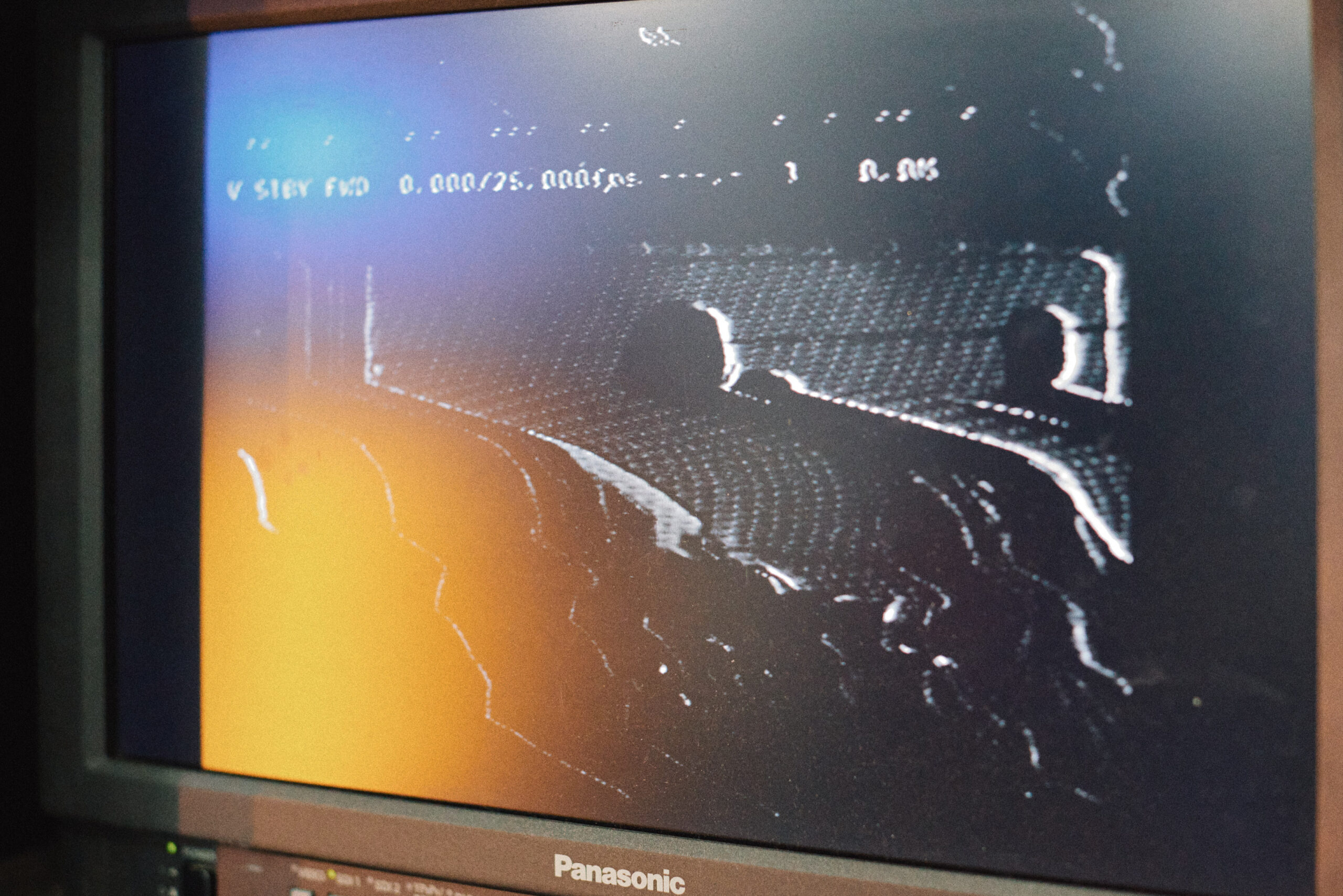Study Structure
From enrolment to graduation film.

Studying at the DFFB is divided into two phases: basic studies and main studies. The first five semesters of the basic study period are required for all subjects; the main study period follows and usually comprises up to seven additional semesters. The standard period of study for the courses in Cinematography, Directing, Production and Editing & Sound is 12 semesters; for students of Screenwriting the standard period of study is 7 semesters.
- The academic year is divided into semesters, which run from October to the end of March, and from April to the end of September.
- Courses are mainly structured in the form of block seminars, so that students can work intensively with lecturers during this time. Spreaded between the seminars are also lectures, colloquia, master classes, mentoring, and project and material development programs.
Basic Studies: Semesters 1–5
The basic studies phase teaches students how to work with the fundamental filmmaking tools and methods. During the first and second semesters, all students, regardless of their level of knowledge and specialisation, participate in a joint intensive generalist curriculum, in which working with 16 mm film plays an important role.
The objectives of the first year are the following:
- for students to gain a basic knowledge of each filmmaking specialisation
- to try out new things and self reflexion
- to get know other filmmakers and their filmmaking approaches
- to narrow existing gaps between the fellow peers created by different approaches and expertise
- to find partners for future work
- and to develop a unique filmmaking perspective.
It is also important for students to understand the necessity of collaboration and to respect the work of all departments within the filmmaking process.
Practical and theoretical seminars are taught by lecturers who work in the film industry: screenwriters, producers, directors, cinematographers, editors, sound engineers, etc.
During the third and fourth semesters, students also complete a fixed, compulsory curriculum. They now enter their respective specialisations in a more intensive manner, learning the advanced skills of each specialisation.
Screenwriting students participate in the project development of their basic studies films. They end their basic studies in the fifth semester with a feature-length screenplay.
Students specialising in Cinematography, Producing, Directing, and Editing & Sound end their fourth semester with the approval of their basic studies film idea. During the fifth semester, their film is then shot, post-produced, and completed.
Main Studies: From Semester 6 Onwards
The main studies phase consists of the following elements:
- practical and theoretical seminars
- masterclasses
- the realisation of an individual film or the realisation of an individual academic achievement relevant to the student’s specialisation
- the possibility of realising film projects that are not part of the obligatory course requirements
- development of graduation projects in facultative project and story development programs
- and the development and realisation of a graduation project.
Building on the foundation of sound craft knowledge acquired during the undergraduate program, the graduate program provides the space to experiment with, interrogate, and explore cinematic means within the context of collective work that is meaningful and necessary for each project.
There are many seminars offered during the main studies phase and each student is responsible for choosing their seminars. We encourage students to take an interdisciplinary approach to selecting their seminars in order to further their professional development.
In addition, students are supported during the development of their projects and screenplays by lecturers, heads of studies, and the director of the DFFB.
Insight into the Range of Courses
DFFB Mondays are composed of various lectures, film screenings, and seminars offered to all students; this event is compulsory for all basic studies students.
The weekly film history seminar is made up of various blocks dedicated to different genres of international films, from early to contemporary cinema. The series presents films non-chronologically, allowing us to view these films in a timeless manner. The series is designed kaleidoscopically—the order of the films crosses several time periods, forming constellations, and allowing films to communicate with each other in surprising ways.
Assessment: During an internal forum on Monday afternoons, students and lecturers discuss each film produced at the DFFB. The discussions focus on the film itself. Every student can present their film at the DFFB forum. In fact, students must present their films at the forum if they wish to screen their films outside the DFFB.
